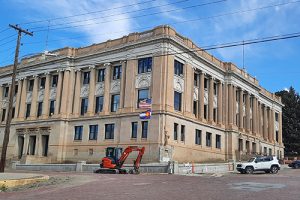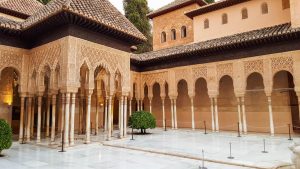by William J. Bechaver
 HUERFANO- A century ago, times were difficult and the majority of American families lived well below the poverty level. Coal mining was a way of life embraced by many hardworking men and boys to support their families. Times were tough and work was hard. Many unsung heroes lost their lives making a living. Accidents in the mines were frequent: many were killed by accidents on the tipples or far below where many were overcome by gases, crushed in cave-ins, or fell victims to the most catastrophic event of their time- the mine explosion. It was commonplace for an acquaintance or friend to be killed while working in the mines.
HUERFANO- A century ago, times were difficult and the majority of American families lived well below the poverty level. Coal mining was a way of life embraced by many hardworking men and boys to support their families. Times were tough and work was hard. Many unsung heroes lost their lives making a living. Accidents in the mines were frequent: many were killed by accidents on the tipples or far below where many were overcome by gases, crushed in cave-ins, or fell victims to the most catastrophic event of their time- the mine explosion. It was commonplace for an acquaintance or friend to be killed while working in the mines.
Life on the surface was no less difficult. Wives at home tried to make ends meet to keep the family fed, warm, and clothed on the meager wages their husbands, sons, and brothers brought home.
Entertainment and recreation were hard to come by but surprisingly common. Most music was heard from a crackling record on the phonograph or through static and squelch over broadcast radio. Dances were frequent because local amateur musicians grouped their talents and gathered weekly to provide the music. Some were exceedingly gifted musicians, trained from childhood on the accordion, fiddle, and piano.
And through it all, a new pastime was working its way into the hearts of Americans. It provided both recreation and entertainment and was as widespread and commonplace as bedbugs. This overwhelmingly popular sport was baseball.
As the Big Leagues thrived back east, this American pastime worked its way into every fiber of the national tapestry. In those days, the nearest Big League teams were in Kansas City and Saint Louis, the only two teams west of the Mississippi. But in other cities across the nation, Farm Teams sprang up. Their primary function was to gather local talent, to "farm" prospective players, in the hope of discovering someone worthy to be sent up to the Big Leagues. In their communities, the Farm Teams provided the only chance to see a baseball game. Pueblo became the home town to the Pueblo Dodgers, a farm club for the popular Brooklyn Dodgers, a team that would eventually move to Los Angeles.
It may seem surprising, but there was not a town in America at that time that didn’t have a baseball team. More surprising yet, professional-level teams sprang up in the coal mining camps. Money was needed to support a team, and mining companies had the necessary financial means. The company owned the mine and the houses, stores, post offices, and schools in the surrounding communities. And they supported the baseball teams. It was the world of big league ball on a small scale.
Most local games were played on Sundays, the only day the mines didn’t work. During the summers, when demand for coal slackened, and coal production was reduced, the mines were not working much of the week. Coal camp teams would travel to play other teams in the area, mostly other camp teams or teams in nearby towns. At times they were given the opportunity to play professional teams, and the hardworking, hard-hitting miners held their own against the best, their teams of amateurs often winning the contests. Such victories were great for morale and good for the company. The baseball clubs became the ambassadors to promote the company. Competition was stiff, and the opportunity to play for a winning team was coveted.
Part two of Miner League baseball to be continued next week.




